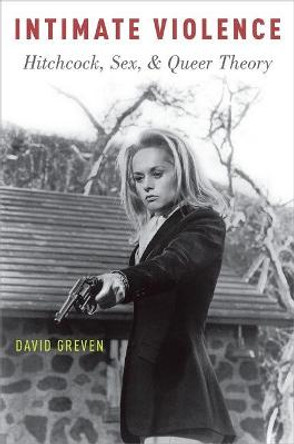Description
Maurice, James Ivory's 1987 adaptation of the E.M. Forster novel, follows an Edwardian man's journey from the awakening of his desire for and love of men to self-acceptance. One of the most politically resistant films of the 1980s, Maurice dared to depict a young man's coming-out story and a happy ending for its lovers, Maurice and Alec.
James Ivory and producer Ismail Merchant, a couple whose cinema is synonymous with period film adaptation, released Maurice during the first AIDS decade, a time of flagrant transatlantic homophobia. Criticism following its release described Ivory as a superficial and staid director, while the film was received as a regression to the uncinematic and overly faithful style that characterized the early adaptations by Merchant Ivory Productions. Offering a close reading of Forster's novel and an analysis of Ivory's distinctive visual style, Richard Robbins's indelible score, and the performances of James Wilby, Hugh Grant, and Rupert Graves, David Greven argues that the film is a model of sympathetic adaptation. This study champions the film as the finest of the Merchant Ivory works, making a case for Ivory's underappreciated talents as a director of great subtlety and intelligence, and for the film as one worth recuperating from its detractors.
Understanding Maurice as a fully realized work of art and adaptation, this volume offers insight into how a stunning novel of gay love became a classic of queer film.
Exploring love, loss, and desire in Merchant Ivory's passionate adaptation of E.M. Forster's classic novel.
About the Author
David Greven is professor of English at the University of South Carolina.
Reviews
"The writing is the greatest joy of this book - in its daring and originality, its clarity and avoidance of academic stuffiness, its freshness and nimble erudition, Greven's Maurice is witty, deeply moving, superbly literate, and erotically tactile, like the movie he praises. In naming Merchant Ivory's Maurice a classic, Greven has created a classic of his own. Long may it be read." Will Aitken, author of Death in Venice: A Queer Film Classic
"Greven succeeds in restoring Maurice to an honored place among significant movies that feature a gay protagonist. The concluding chapter is sophisticated yet accessible to a broad audience. Greven writes with a clarity that will likely appeal to general audiences and film scholars alike." Library Journal
"Maurice is placed by media professor David Greven in a tradition of melancholy and lyrical gay films exemplified by Ang Lee's Brokeback Mountain, and later Luca Guadagnino's Call Me By Your Name. Greven ... makes clear in an autobiographical note that Maurice had a tremendous effect on people like himself: lonely gay men who were still closeted when they saw it." Gay & Lesbian Review
Book Information
ISBN 9780228018780
Author David Greven
Format Paperback
Page Count 208
Imprint McGill-Queen's University Press
Publisher McGill-Queen's University Press






